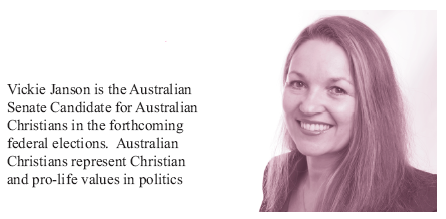A Genuine Argument for Protecting Marriage
Identity is Core

1. Marriage between a man and woman is consistent with the biological reality that every life is by design the product of two significant people: a father and mother who are equally relevant to a child's existence and their biological, ethnic and cultural identity. The natural environment of the child provided by biological parents, or those who represent that reality, should be protected to promote identity, certainty and stability. The big questions common to all are 'where did I come from? and 'who am I?' Whether parents are married or not, or are natural parents or adoptive parents, as men and women they represent the biological reality of how all children came into existence. If a child is deprived of a natural parent for whatever reason it is rightly considered a deprivation. While unfortunate circumstances occur, it should not be considered the right of an adult to impose this deprivation upon another. It should certainly not be the right of the state to legislate it.
2. Ignoring biology to include any sexual orientation in the marriage mix is to ignore the special relationship that exists between a husband and wife and the children they create together. In 2013 past Prime Minister Julia Gillard in apologising for the forced adoption of babies referred to the 'most primal and sacred bond there is: the bond between a mother and her baby'. A homosexual couple by nature cannot provide this. Likewise, past Prime Minister Kevin Rudd in his apology to the Stolen Generation noted these children were 'human beings who have been damaged deeply by the decisions of parliaments and governments'. That's a history not to be repeated. Identity is important and therefore biology is. President Obama has on many occasions publicly lamented the pain of not growing up with a father in his own house and pointed to the connection of fatherlessness and violent crime.
3. The alarming research on the cost to children and society at large due to fatherlessness, children disconnected from their natural fathers for whatever reason, is reason enough to support the current Marriage Act. Same-sex marriage will create by design the normalisation of fatherlessness and motherlessness. What children need are better fathers and mothers, not to have them legislated out of their lives altogether.
4. The equality and all-inclusive argument is faulty. Redefining marriage to include same sex couples may be seen as exclusive rather than inclusive for the most vulnerable in families. Same sex marriage and parenting, which cannot be divorced from marriage, by nature excludes the right of children to the equal opportunity of a mother and father afforded to other Australians. There is no equality for the children.
5. If legalised, same sex marriage would also legally exclude the general public from legitimately holding the view that all relationships are not equal. This goes directly to freedom of conscience, belief, speech and association; hallmarks of liberal democracy. While all people are and should be equal before the law, it does not follow that all relationships must be equal before the law. If based on that premise, redefining marriage to include same sex couples will reduce the legal protection to oppose every other relationship being legalised; whether polygamous, adult/child marriage or an incestuous marriage. A legal precedent of 'all relationships are equal' would have been set. Most Australians would argue that these relationships are inherently different, with some being rightly judged as better for children's identity formation and life outcomes. Redefining marriage will foster greater exclusion of those who simply believe both mums and dads are important to children.
6. Marriage between a man and a woman offers natural diversity to children. Same-sex marriage would offer 'two of the same' contradicting the diversity argument. Only a woman can be a mother and only a man can be a father.
7. The main argument proponents have for redefining marriage is freedom to marry the one you love. As previously stated, this leaves the door open for any loving relationship to be included, even including polygamy and incest. The love argument is based on emotion alone while the traditional understanding of marriage is of love that makes both a commitment and a sacrifice. In the context of marriage and family, this is a personal sacrifice to potentially offer a child a mother and a father. Australian law treats all couples the same, whether married or de facto, heterosexual or homosexual. There is full relationship equality already. But marriage is a special institution for heterosexual couples that benefits children, reflecting the natural order; because all things being equal, couples naturally produce children.
Conclusion: people who support the current Marriage Act do so not because they are bigots or they hate others, but because they sincerely believe the best outcomes for children are found in relationships with their natural parents, or those who represent father and mother; a unity of natural diversity that confirms ethnic, cultural and biological identity. Many have sought to uncover their heritage for health and wholeness reasons and many have been hurt due to being deprived of the knowledge of this inheritance. Let's not perpetuate identity confusion.
Homosexuals have a right to live as they choose; They
don't have the right to redefine marriage for all of us. ![]()

